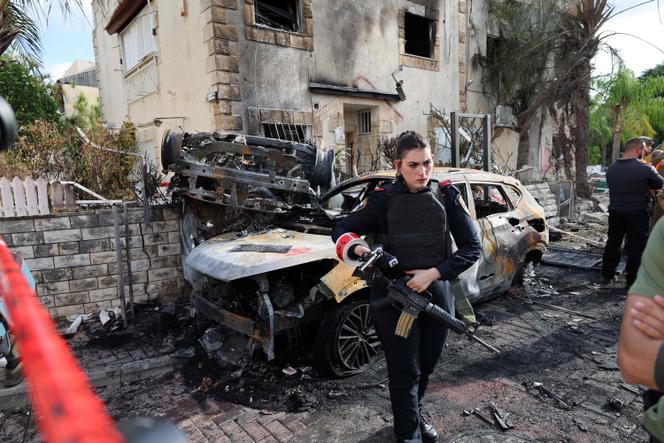


The Israeli army launched a massive bombing campaign in Lebanon on the morning of Monday, September 23. Dozens of strikes were recorded in the south of the country and in the Bekaa Valley by Agence France-Presse journalists, as well as by the official Lebanese press agency, which reported the first civilian casualties.
The Israeli army launched this latest operation after, according to its claims, identifying an attempt to fire in Israel's direction. In a statement by IDF spokesperson Daniel Hagari on Monday, he urged any Lebanese people located near houses and buildings where Hezbollah had stored weapons to "immediately move out of harm's way." He added that strikes targeting the Lebanese Shiite party would continue in the near future, and that they would be "extensive precise strikes." On Sunday, ahead of the opening of the UN General Assembly, UN Secretary-General Antonio Guterres expressed concern that Lebanon was becoming "another Gaza."
Israel had already carried out "pre-emptive" strikes on southern Lebanon on Saturday evening. At the time, the army announced that it had targeted "thousands of rocket launch pads" ready for use against Israel. These strikes preceded the retaliation launched by Hezbollah on Saturday night and Sunday, in response to the sabotage of its telecommunications systems, and then to the decimation of the command of its elite Radwan Force. The Shiite party had targeted several military sites within a 50-kilometer radius in the north of Israel, forcing more than 100,000 Israeli people to stay in shelters for hours on end. Schools in northern Israel were closed, as was the airspace.
Hezbollah needed to keep up appearances and strike back after a week that had exposed its great vulnerability to Israel. In lieu of the "just punishment" he had promised, Hezbollah's leader Hassan Nasrallah opted for a graduated response, aimed at demonstrating the resilience of his organization and its ability to extend its field of action, all without going so far as to provoke an uncontrolled escalation. On Sunday, at a funeral for two senior commanders of the movement, who were killed on Friday in an Israeli strike on the southern suburbs of Beirut, along with 14 members of the Radwan Force and at least 35 civilians, its second-in-command, Sheikh Naim Kassem, announced "a new phase" in the battle against Israel.
Hezbollah's leaders have been presenting the continuation of the war of attrition as the ultimate form of resistance. They initiated this war on October 8, 2023, the day after Hamas's attack on Israel, in support of the Gaza Strip, which was caught under a deluge of fire. However, this strategy carries a very high risk of escalation, at a time when Israeli leaders have been making displaced populations' return to the north of their country their priority, and have announced that they are shifting "the center of gravity of the war" to the north.
You have 49.59% of this article left to read. The rest is for subscribers only.
